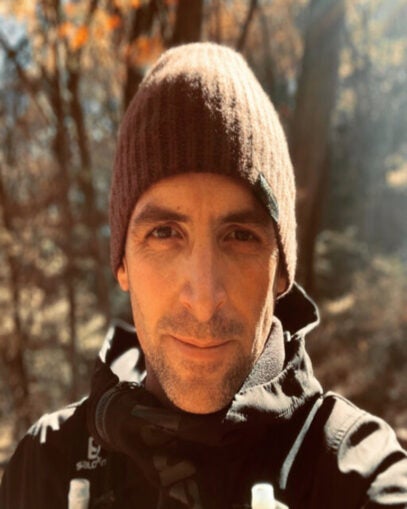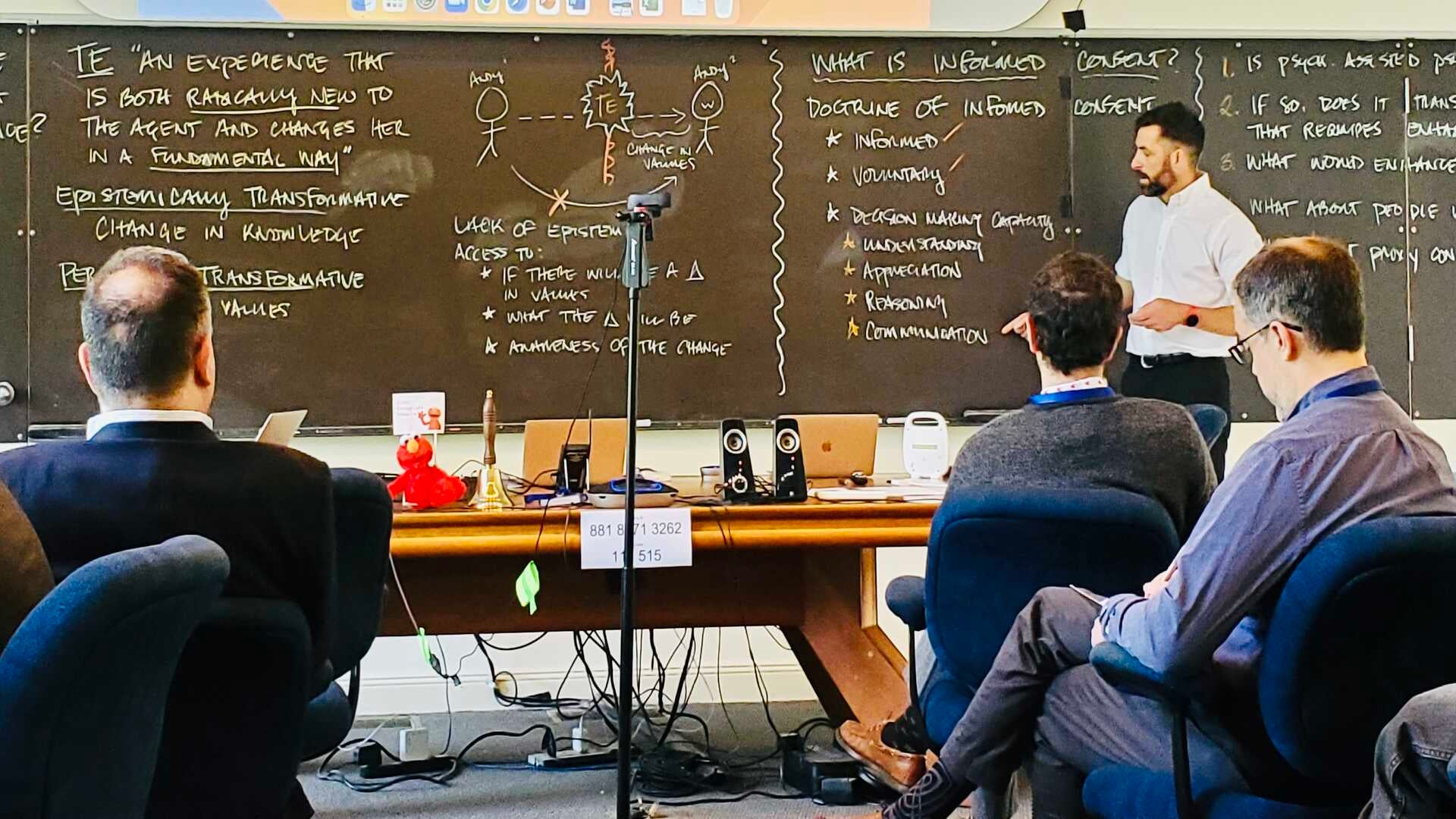The June 2023 Banbury meeting, “Developing an Ethical Framework for Psychedelics Research and Use,” brought together an interdisciplinary group of psychedelic researchers, therapists, bioethicists, Indigenous scholars, and advocates. During the meeting, I was able to speak with Andrew Peterson, Ph.D. Dr. Peterson is an assistant professor of philosophy at George Mason University. He is also an affiliate researcher at the University of Pennsylvania Memory Center. He earned his Ph.D. in philosophy from University of Western Ontario. We spoke about Dr. Peterson’s research on the philosophy of neuroscience, issues associated with the scientific study of consciousness, and bringing good trouble to science.

Can you tell me about what you do in, more or less, two sentences?
I’m a philosopher who focuses on the brain and consciousness. But I like to be a troublemaker when it comes to doing philosophy.
What is your favorite part about what you do? What gets you excited to go to work?
So, I’m a philosopher, right, and that’s a bit odd. I imagine that not a lot of philosophers come to the Banbury Center, because they are usually talking to their own kin. But I’m the kind of philosopher who likes to interact with clinicians and scientists; I find that really fun. I suppose that is my favorite part of what I do – being able to interact with people from different fields. Causing trouble within the scientific community is certainly what gets me excited.
What are some of the challenges you face in your work?
It’s a double-edged sword, because some people are like, “Why is there a philosopher in the room?” What do I actually have to offer? So, the challenge is actually being able to connect and build trust with scientists to make positive change.
What sparked your interest in the philosophy of neuroscience?
My bread-and-butter work is actually the loss of consciousness and the restoration of consciousness following brain injury. Thinking about particular patients and families who were struggling with life-and-death questions in regard to brain injuries led me to more technical questions about how the mind or the brain generates consciousness, how neuroscientists think about the concept of consciousness, and so forth.
What is a common misconception about your work?
Everybody argues about what consciousness means. Everyone’s using that term in this meeting, and no one seems to know what it means yet. There’s a clinical and a non-clinical conception of what it means. We’re talking about psychedelics right now; people say, “Psychedelics expand your consciousness.” Well, what does that mean? Is consciousness the kind of thing that can be expanded? The term seems so familiar, because consciousness itself is so familiar to us. We’re using it right now in talking to each other. Nevertheless, when we use the term, we are often referring to different things. So, we talk past each other when discussing consciousness. Scientists especially.
Is there a recent development in your field that you believe will have a large impact?
There’s some other work that I’m doing on paradoxical lucidity in persons with severe dementia, which refers to cases in which people with severe dementia have unexpected awakenings; we’re doing a study on the family caregiver’s experience of this. The thing that is interesting about it is – what on Earth is going on inside the patient’s brain, such that they regain consciousness or mental clarity? It’s really exciting that the National Institute on Aging (NIA) has taken interest in this new phenomenon of paradoxical lucidity, and studying paradoxical lucidity might be a really exciting avenue for understanding consciousness – similar to how people say that psychedelics might be an interesting way to understand consciousness.
This is your first time at the Banbury Center. What do you think of the meeting so far?
Oh, it’s wild! When I came in and I saw the chalkboard, I was like, “There have been other, really cool people who have touched this chalkboard before.” It felt like such an honor to be able to touch the chalkboard as well. That’s the coolest experience that I’ve had so far; there’s just something special about that.
Is there a general topic or discussion that you have particularly enjoyed?
I really liked Yuria Celidwen’s presentation; she brought up the issue that Indigenous cultures and the West are on totally different pages when it comes to psychedelics, and we need to find ways for the two to communicate. I actually thought it was a really good idea to begin with that topic and thread it throughout the meeting, as opposed to making it an afterthought at the end.

